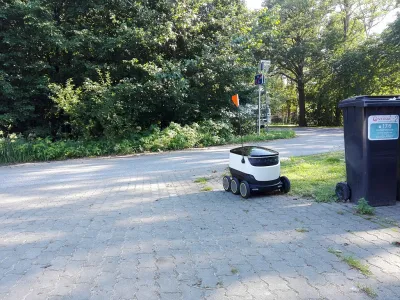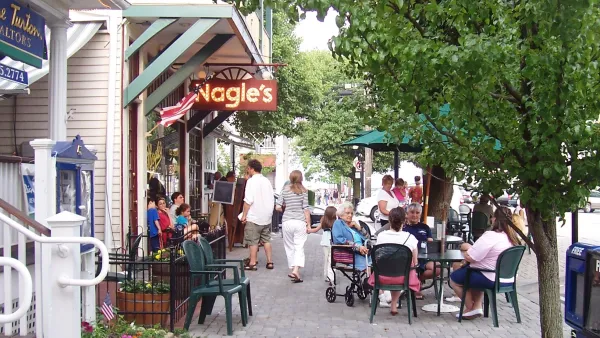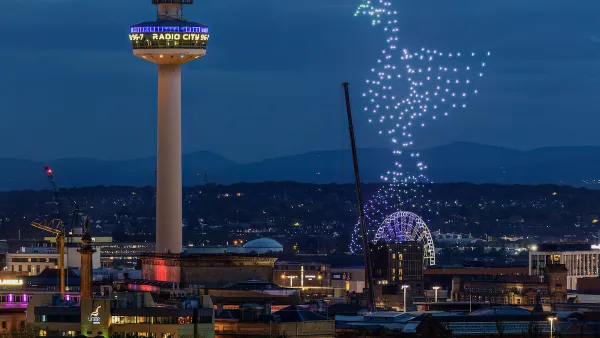A delivery drone pilot launched in Washington, D.C. in 2016 has been expanded for further deployment.

"The D.C. Council has passed legislation to permit the large-scale deployment of delivery robots across the city," reports Sara Gilgore.
According to Gilgore, the law was drafted by and for Starship Technologies, a company that has piloted the robots in D.C. since 2016.
The law removes geographic limitations, meaning Starship could seek permits to operate beyond just four ZIP codes, and enter the previously restricted central business district. It would also allow the company to have more than five robots on the streets at a time (which, as those of us familiar know, could mean more barking dogs and curious pedestrians who encounter them).
Expect to see more delivery robots on the streets and sidewalks of D.C. starting this fall. The company partners with DoorDash and Postmates, and also operated in Virginia, Idaho Wisconsin, Florida, Ohio, Utah, and several cities in California. Delivery robots are coming soon to Arizona too.
The expansion of Starship's service comes despite reports of drivers striking delivery robots with cars, as detailed in an article by Jeff Clabaugh from February 2018.
Hat tip to Chris Teale for sharing the news.
FULL STORY: More robots in D.C.? Here’s what this delivery company is planning.

National Parks Layoffs Will Cause Communities to Lose Billions
Thousands of essential park workers were laid off this week, just before the busy spring break season.

Retro-silient?: America’s First “Eco-burb,” The Woodlands Turns 50
A master-planned community north of Houston offers lessons on green infrastructure and resilient design, but falls short of its founder’s lofty affordability and walkability goals.

Delivering for America Plan Will Downgrade Mail Service in at Least 49.5 Percent of Zip Codes
Republican and Democrat lawmakers criticize the plan for its disproportionate negative impact on rural communities.

Test News Post 1
This is a summary

Test News Headline 46
Test for the image on the front page.

Balancing Bombs and Butterflies: How the National Guard Protects a Rare Species
The National Guard at Fort Indiantown Gap uses GIS technology and land management strategies to balance military training with conservation efforts, ensuring the survival of the rare eastern regal fritillary butterfly.
Urban Design for Planners 1: Software Tools
This six-course series explores essential urban design concepts using open source software and equips planners with the tools they need to participate fully in the urban design process.
Planning for Universal Design
Learn the tools for implementing Universal Design in planning regulations.
EMC Planning Group, Inc.
Planetizen
Planetizen
Mpact (formerly Rail~Volution)
Great Falls Development Authority, Inc.
HUDs Office of Policy Development and Research
NYU Wagner Graduate School of Public Service





























